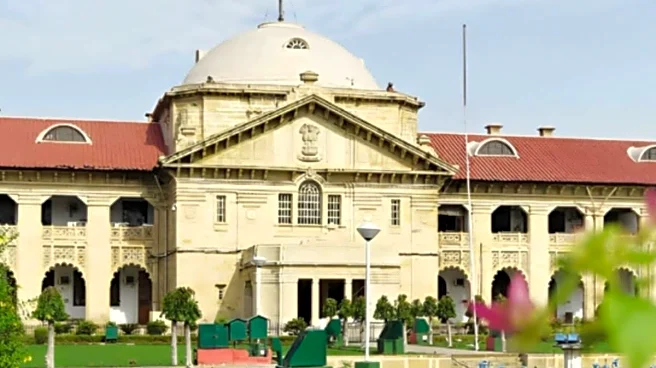The Allahabad High Court (HC) has held that minority-run educational institutions cannot claim immunity from government regulations aimed at maintaining academic standards. The Court made the observation
while quashing an advertisement issued by a Gorakhpur-based madrassa for recruiting teachers and a clerk, calling the process illegal and contrary to State policy. Justice Manju Rani Chauhan, deciding a petition filed by the Committee of Management, Madarsa Arabiya Shamshul Uloom, Sikariganj (Ehata Nawab), said that the right under Article 30(1) of the Constitution to administer minority institutions “cannot be stretched to claim immunity from reasonable regulations framed to ensure academic excellence”. The controversy began when Sajjad Hussain, claiming to be the Manager of the madarsa, issued an advertisement on April 29, 2025, in the daily Aaj for six vacancies — five for Assistant Teachers (Tahtaniya) and one for a Clerk. The Committee of Management of the madrassa challenged the move, asserting that Hussain was not even a valid member of the society managing the institution and had fraudulently assumed charge. The Court found that Hussain’s name had been struck off from the society’s membership list as far back as 2019, when the competent authority declared the earlier committee time-barred and ordered fresh elections. Despite this, a list of office bearers for 2024-2025 was later registered showing him as manager, a move the petitioners called “manipulative and illegal”. Adding to the illegality, the recruitment was carried out even after the State Government had imposed a ban on fresh appointments in all madarsas through a Government Order dated May 20, 2025. The order followed the Supreme Court judgment in Anjuman Kadri v. Union of India (November 2024), which declared the traditional Kamil and Fazil degrees unconstitutional and directed that new qualification norms be framed for madarsa teachers. In line with this policy, the Director of Minority Welfare, the Registrar of the U.P., Madarsa Education Board, and the District Minority Welfare Officer had issued repeated instructions to all institutions to halt appointments until the new standards were finalised. The Court noted that the Gorakhpur madarsa was specifically informed of these restrictions through several letters between May and July 2025, yet it proceeded with recruitment. Justice Chauhan observed that such defiance of government directions could not be justified in the name of minority rights. “The issuance of advertisement without waiting for the government to frame standards for qualification of teachers in madarsas is bad in the eyes of law,” the court said, holding that the right to administer an institution does not translate into the right to act contrary to law. The Court drew upon a series of Supreme Court precedents including P.U. Joshi v. Accountant General (2003) and Chandigarh Administration v. Usha Kheterpal Waie (2011) to reiterate that fixing qualifications and recruitment rules lies exclusively within the policy discretion of the State. Finding the recruitment process “in clear violation of government policy and judicial directions,” the High Court quashed the advertisement dated April 29, 2025, declaring that any appointments made under it were “illegal per se”. It clarified that those who may have joined pursuant to the advertisement “cannot claim any right to continue” since their selection stemmed from an unlawful act.


/images/ppid_a911dc6a-image-177072262840247003.webp)


/images/ppid_59c68470-image-177072257428767462.webp)

/images/ppid_59c68470-image-177072253642926051.webp)
/images/ppid_59c68470-image-177072253000836336.webp)
/images/ppid_59c68470-image-177072252942576276.webp)


/images/ppid_59c68470-image-177072253178811458.webp)